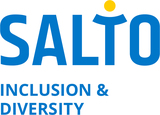Planning international projects
- You can add your own tips and experiences for planning projects with ex-offenders at the bottom of the page (log in with your SALTO username or create one)
Communication
- The red line running through the setting up and planning phase is communication. Communication with the young person, with their other support agencies, even their peers or parents if appropriate. Communication with your international partners, and last but not least communication with your National Agency.
- Regular ongoing communication is likely to have a direct link to the success of any project. In the beginning of the project or on a very short project the communication will probably need to be more frequent.
- If a young person is on a three month activity, the communication after the initial settling-in phase may move to less frequent calls or emails whilst things are running smoothly. Again close to the end of a project communication should step up again in order to support preparations for re-integration. Although not essential it is good practice this communication (from host project to young person - particularly after an European Voluntary Service project) continues. To a host organisation this young person was probably one of many they have hosted, to the young person it may have been such a significant experience it changes their lives.
Involvement
- Your young people and in this case the target group of young offenders or those with an offending background should be included in the planning phase of the project. Many times in the past these young people have probably been 'placed' into an existing programme which may or may not suit their needs. Where possible it is good practice to involve the young people in all processes of an activity, the planning, activity and evaluation phase - of course this is not always possible with a transient group with high support needs, but where possible it should be an aspiration.
Exercise:
The Ladder of Participation (see page 30 of No Offence) is a good way of getting the young people to focus on their role in the project. To find out how important they think participation is young people are given two different colours of "sticky dots".
- Red: What they think their current level of participation in the project is
- Green: Where they would like their level of participation to be in the future
Ask the young people to discuss their thoughts with other members of their group then stick their dots onto the ladder in the appropriate places. It is good to return to this exercise throughout the project, as this will enable you to identify how inclusive the group feels that the process has been.
^^ top ^^
Starting with the young people's needs
- It is essential as already mentioned that inclusion in a mobility project is "needs led" not "project led". It is not appropriate to slot a young person from this target group into a project just because there is space. The opportunity should be tailor made for this young person, ensuring that a need assessment and risk assessment have taken place at the outset, followed by a high quality supported project by both partners. It is essential that partners are working together considering equally the needs of the volunteer in parallel with the organisation.
Clarity about support possibilities and actual activities
- In the same vein, it is important that a hosting partner in this relationship identifies who they can and who they cannot support. For example one partner may say for a youth exchange they can support young people with a history of drug or alcohol misuse because the exchange will have high staffing & underage young people, therefore alcohol will be forbidden. Where as for another programme such as hosting a volunteer for four weeks on a volunteering programme, they may say a young person with this background could struggle due to the fact they would live with other volunteers who would drink socially, and may be put in too much temptation, yet volunteers with an offending background not relating to substance over-use could be managed. It is also important to give the young person real concrete information about the actual activities they will experience, in order as far as possible to prepare them for their experience.
Planning
- Often any international working with this target group will require more efficient and lengthier planning. More obstacles may arise and problems may take longer to overcome. There may be more practical issues with this target group, such as legal papers required to travel, or a young person may be receiving multi-disciplinary support from a team of people, such as a counsellor, a probation or youth offending worker, hostel accommodation staff etc. In order to satisfy all the support agencies and professionals, time must be taken during the planning phase.
Identify problems early
- Sometimes problems will occur before a young person or group leave on a project during the planning stage, for other young people it will be in the first stages of a project, and for still others, it could be closer to the project ending. For other young people the problems will be on return from their international experience. It is very important to identify these problems as early as possible. Organisations are often afraid to admit a project is failing. Often a problem identified early and dealt with immediately can mean a project actually continuing rather than coming to a premature end, especially when they feel they had prepared well and the young person really was ready. They are worried about the young person experiencing another failure in their life, about what others may think, and about whether funders (in this case the National Agency) will think they have mismanaged resources. For the young people, this is a justified fear, many of our target group feel society has failed them and they are failing in society. For an experience in the Youth in Action programme to be just another failure to add to a long list is certainly something to be avoided, and the best way is to identify problems early
- You can add your own tips and experiences for planning projects with ex-offenders at the bottom of the page (log in with your SALTO username or create one)
^^ top ^^
Case Study: Antonia
Antonia was 23 and had spent nearly all the past 7 years in prison for crimes mostly committed to fund her heroin addiction. Her history of crime and drug addiction meant that she was no longer welcome at the family home. On leaving prison she was found accommodation in a hostel, where staff were committed to European Voluntary Service and had previously sent other residents to Europe. Her home organisation works very closely with this hostel and met this young lady whilst she was staying there.
Antonia continued to receive the support she needed to abstain from heroin and started to receive prescribed medication. Antonia participated in a 3 week group placement in Norway, where her sending organisation send a group every summer. These group projects have the added benefit of us being able to send support staff with the young people. This experience allows for around 10 young people, together with 2 members of support staff, to work and live in a village in Norway. They live together in a large house, eat all their meals together and share the household duties. Their European Voluntary Service experience is spent helping in the village, doing whatever tasks are required, e.g. haymaking, wood cutting, etc. Staff from her sending organisation accompanied Antonia on the project which aided the transfer of her medication to Norway.
The experience went well, although it did take Antonia a while to settle into the community living. On her return she again made contact with her family and inspired by the progress she had made Antonia was able to return to live at home. She has remained out of prison for over a year now, the longest time previous to that had been 7 weeks, and now works with her father.
^^ top ^^
 www.salto-youth.net/
www.salto-youth.net/
NoOffence/

 Protected from exclusion
Protected from exclusion
Downloads
The following downloads are available:
- No Offence - projects with (ex) offenders - 2010 update
How to organise (international) youth projects with young offenders, ex-offenders and young people at risk of offending or currently in prison - despite some limitations. Based on SALTO TC No Offence 2006.
